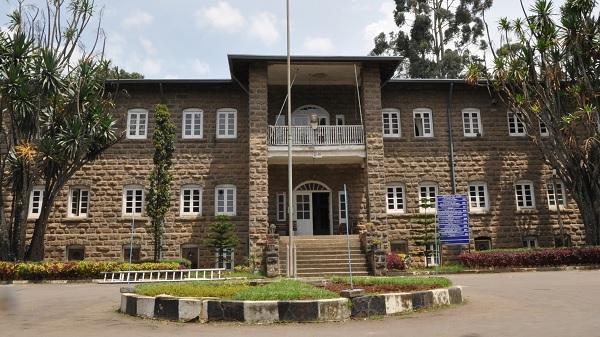
ADDIS ABABA (U.S. Embassy in Addis)–The United States is strengthening Ethiopia’s capacity to prevent future pandemics and helping prepare Ethiopian experts provide critical support if an outbreak occurs. The U.S. Department of Defense, Defense Threat Reduction Agency (DTRA) recently transferred the design and plans for a National Reference Laboratory (a Biosafety level 3, BSL-3, laboratory) to the Ethiopian Public Health Institute (EPHI). The transfer is part of the U.S. Department of Defense’s effort through the Cooperative Biological Engagement Program (CBEP) to build the capacity of regional partners to help prevent future pandemics and prepare them to provide support if an outbreak occurs.
The process to transfer this technology began in January 2016 when Ethiopia expressed its strong commitment to the United Nations Biological Weapons Convention, leading to discussions on potential cooperation that culminated in the signing of a transfer agreement in March 2018. By providing these plans DTRA hopes to enhance Ethiopia’s ability to detect, diagnose, and report man-made or natural pathogens of concern and react to bio-terror attacks and potential pandemics.
In addition to this initiative, DTRA routinely works with Ethiopia’s National Animal Health Diagnostic and Investigative Center, Armeaur Hanson Research Institute, and Mekelle University on biosafety, biosecurity and research of diseases. Through collaboration with the U.S. Centers for Disease Control (CDC), DTRA/CBEP supports the Field Epidemiology Training Program (FETP) in Ethiopia to enhance the surveillance and reporting of diseases. Ethiopia has been a key U.S. ally to this end and has proven capable in their ability to detect, diagnosis, report, and research diseases of security concern.
CBEP is the U.S. Department of Defense’s premier biological nonproliferation division with a mission of protecting the United States and its allies from especially dangerous pathogens by collaborating with partners and the international community to minimize the threat of deliberate, accidental, and natural infectious disease outbreaks through enhanced biosafety, biosecurity, and surveillance measures.
A BSL-3 laboratory typically includes the ability to research and secure microbes that can cause serious or potentially lethal disease through inhalation or contact such as yellow fever, West Nile virus, and the bacteria that causes tuberculosis.
Source: U.S. Embassy in Addis Ababa
